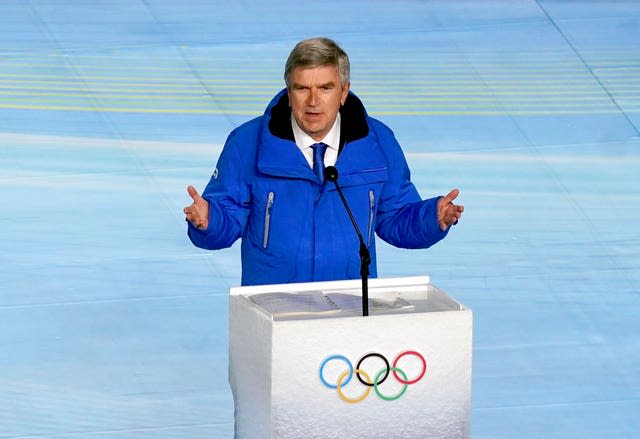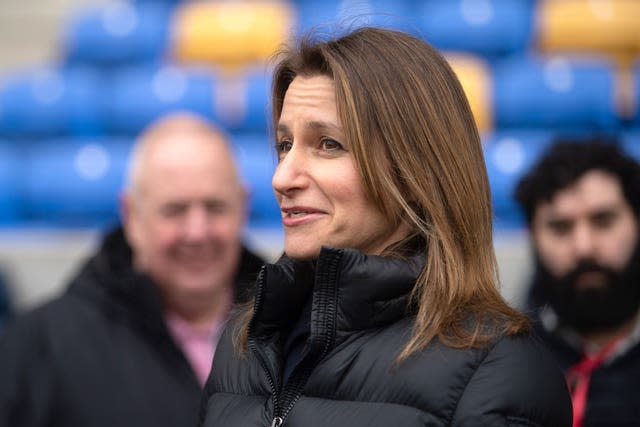Russian Olympic athletes face ‘strictest neutrality conditions’ – Lucy Frazer
Culture Secretary Lucy Frazer insists Russian athletes will be competing under “the strictest neutrality conditions possible” at the Olympic Games amid accusations of a Government U-turn on the issue.
The Government has faced criticism after International Olympic Committee president Thomas Bach revealed earlier this month he had received a letter from UK Sports Minister Stuart Andrew saying the Government now accepted the conditions under which Russian and Belarusian athletes could compete at the Games in Paris, amid the Russian invasion of Ukraine.
The Government did not issue any public statement ahead of Bach’s revelation making clear it felt the conditions were now acceptable.

Frazer said in April last year that IOC conditions on neutrality did “not go far enough” and said any athlete who had been in receipt of state funding was a “de facto representative of those states”.
Britain is part of a coalition of like-minded countries which had called for a ban on such athletes due to this funding.
The IOC’s conditions mean any athlete with links to the military, or who have expressed support for the war, will be banned from competing in Paris, but still do not preclude athletes who have received state funding.
Despite this, Frazer and the Government now feel the IOC and International Paralympic Committee’s neutrality conditions have reached an “accepted baseline”.
In a statement issued to the PA news agency, Frazer said: “We continue to vigorously oppose Russian and Belarusian state participation. Our policy has never been a complete and total ban on neutral athletes from Russia and Belarus participating at all.

“Athletes from Russia and Belarus have been able to compete in the UK as neutral athletes since the invasion. For example, our guidance allowed athletes from Russia and Belarus to compete at tennis competitions under strict neutrality conditions.
“Instead, our efforts – and the efforts of our international coalition – have been focused on urging the IOC and IPC (International Paralympic Committee) to change their approach, apply the strictest neutrality conditions possible and ensure they are implemented rigorously.
“After two years of concerted lobbying, they have done that. And the result is that the number of athletes from Russia and Belarus expected to participate in the Olympics is in the tens, not hundreds.
“As a result, we have written to the IOC and IPC noting that their final neutrality rules for Paris achieve the widely accepted baseline of ensuring that Russia and Belarus are not represented as states in international sport.
“Our focus now turns to ensuring these rules are stringently enforced and maintained as long as the war goes on.”
📌 Flag and anthem approved for Individual Neutral Athletes (AINs) with a Russian or Belarusian passport at the Olympic Games #Paris2024 by the IOC EB.
🔹 The anthem has no lyrics and has been produced solely for this purpose: https://t.co/adFO693XkG
🔹 The flag 👇👇 pic.twitter.com/5WNsyBfWX6
— Christian Klaue (@ChKlaue) March 19, 2024
The IOC has said it expects 36, and possibly as many as 54, Russian athletes to be involved in Paris. Athletes will not be able to compete in team events, will not compete in Russian colours or under the Russian flag and any medals will not be collated together in a table.
The IOC is leaving it up to the individual sports to make decisions on whether to allow Russian and Belarusian athletes to compete even as neutrals – World Athletics, for instance, has imposed an outright ban.
Sources within Government say the decision to accept the criteria had nothing to do with an IOC threat to withdraw the UK’s right to hosting Olympic qualifier events.


